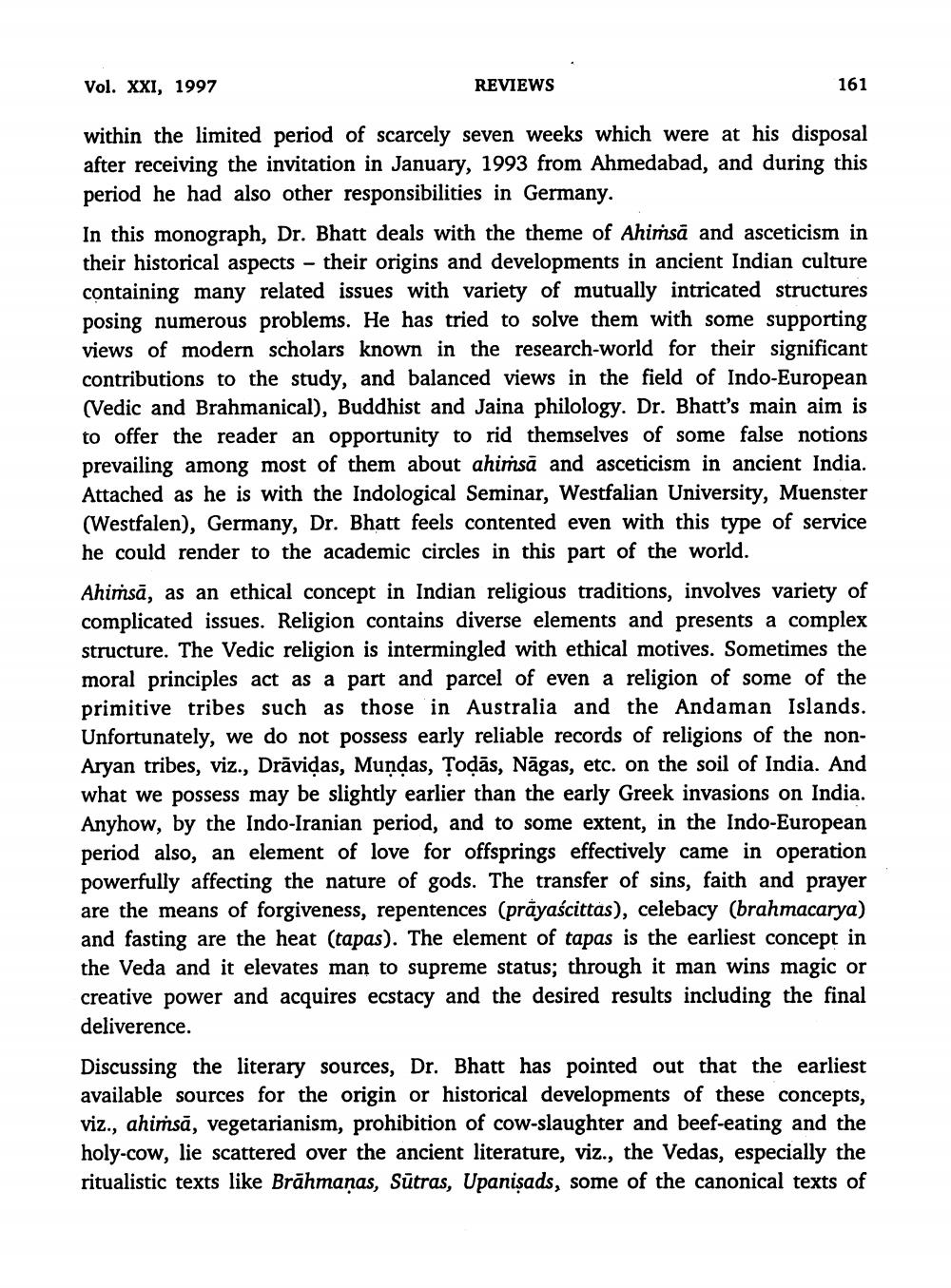________________
Vol. XXI, 1997
REVIEWS
161
within the limited period of scarcely seven weeks which were at his disposal after receiving the invitation in January, 1993 from Ahmedabad, and during this period he had also other responsibilities in Germany.
In this monograph, Dr. Bhatt deals with the theme of Ahiṁsā and asceticism in their historical aspects - their origins and developments in ancient Indian culture containing many related issues with variety of mutually intricated structures posing numerous problems. He has tried to solve them with some supporting views of modern scholars known in the research-world for their significant contributions to the study, and balanced views in the field of Indo-European (Vedic and Brahmanical), Buddhist and Jaina philology. Dr. Bhatt's main aim is to offer the reader an opportunity to rid themselves of some false notions prevailing among most of them about ahiṁsā and asceticism in ancient India. Attached as he is with the Indological Seminar, Westfalian University, Muenster (Westfalen), Germany, Dr. Bhatt feels contented even with this type of service he could render to the academic circles in this part of the world.
Ahimsā, as an ethical concept in Indian religious traditions, involves variety of complicated issues. Religion contains diverse elements and presents a complex structure. The Vedic religion is intermingled with ethical motives. Sometimes the moral principles act as a part and parcel of even a religion of some of the primitive tribes such as those in Australia and the Andaman Islands. Unfortunately, we do not possess early reliable records of religions of the nonAryan tribes, viz., Drāvidas, Mundas, ļodās, Nāgas, etc. on the soil of India. And what we possess may be slightly earlier than the early Greek invasions on India. Anyhow, by the Indo-Iranian period, and to some extent, in the Indo-European period also, an element of love for offsprings effectively came in operation
owerfully affecting the nature of gods. The transfer of sins, faith and prayer are the means of forgiveness, repentences (pråyaścittas), celebacy (brahmacarya) and fasting are the heat (tapas). The element of tapas is the earliest concept in the Veda and it elevates man to supreme status; through it man wins magic or creative power and acquires ecstacy and the desired results including the final deliverence.
Discussing the literary sources, Dr. Bhatt has pointed out that the earliest available sources for the origin or historical developments of these concepts, viz., ahimsā, vegetarianism, prohibition of cow-slaughter and beef-eating and the holy-cow, lie scattered over the ancient literature, viz., the Vedas, especially the ritualistic texts like Brāhmanas, Sūtras, Upanisads, some of the canonical texts of




